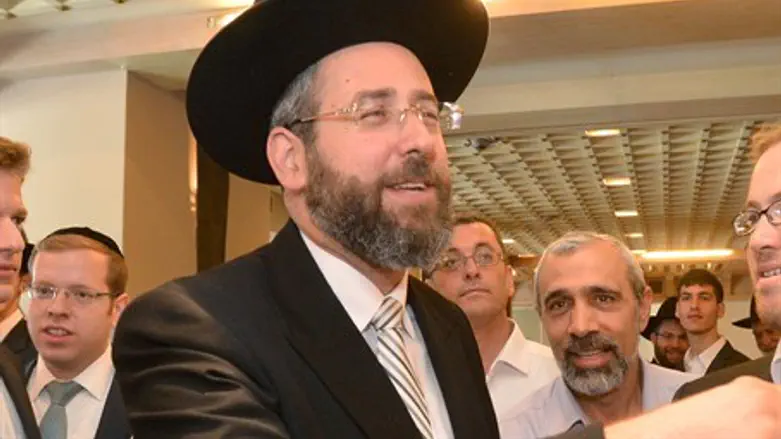
Rabbi David Lau, who was elected Chief Ashkenazi Rabbi on Wednesday evening, told Arutz Sheva after his victory that he would be everybody’s rabbi.
Rabbi Lau said he would seek to create in Israel a society that will cherish Judaism and whose members will know to respect one another.
"As I have stated throughout the last few months, I am everyone’s rabbi - I do not belong to one sector or another, but to all of Israel," he said.
Rabbi Lau added that in the city of Modi’in, where he has served as Chief Rabbi until now, he was able to create a good partnership between people who "look for the light in Judaism" and that he now plans to "copy" what he achieved in Modi’in to the national level.
He said he wants to “create a pleasant society which appreciates Judaism and is interested in studying Judaism. A society whose members know how to respect each other.”
"Let's know how to be good friends with one another and hopefully we can achieve this," concluded Rabbi Lau.
The results of Wednesday’s election are viewed as a victory for the hareidi-religious stream, whose candidate, Rabbi Yitzhak Yosef, was elected as Sephardic Chief Rabbi.
The two victorious candidates had reached a deal, according to which the supporters of each would vote for the other. Candidates from the religious Zionist stream failed in both the Ashkenazi and Sephardic races.
Deputy Religions Minister, Rabbi Eli Ben Dahan (Bayit Yehudi), voiced his disappointment with the failure of religious Zionist candidates to be elected to the posts of chief rabbis.
"As a member of the Bayit Yehudi I am certainly disappointed that we failed in the mission to at least have one rabbi from the religious Zionist camp elected,” he said. “We put in the maximal effort possible but regrettably, it failed.”
The rabbi added that he hopes the secular public will not “give a kick to the institution of the Rabbinate” out of disappointment with the hareidi candidates elected. “They need to understand that the importance of the institution of the Rabbinate is much more important than the chief rabbis.”
